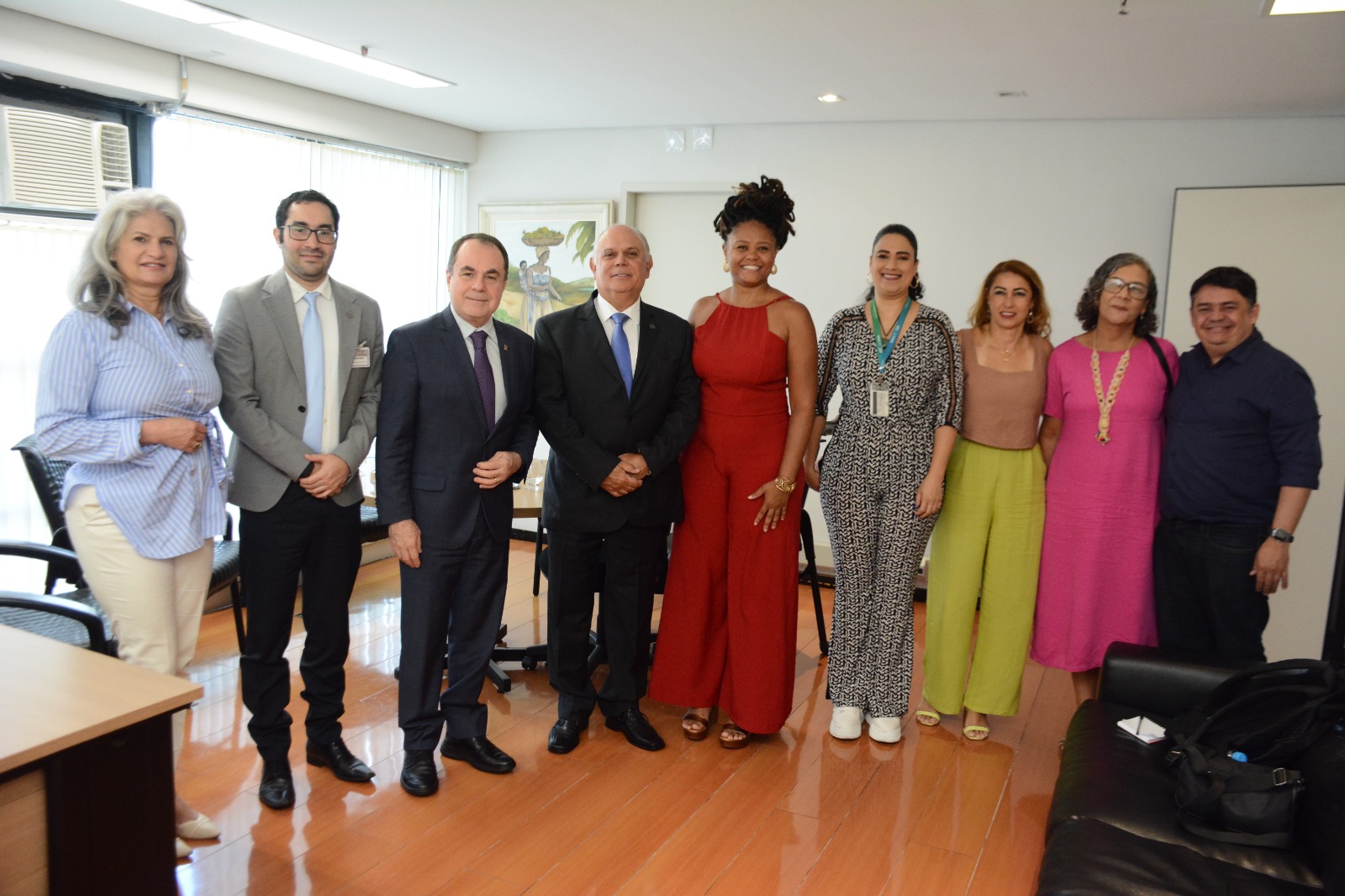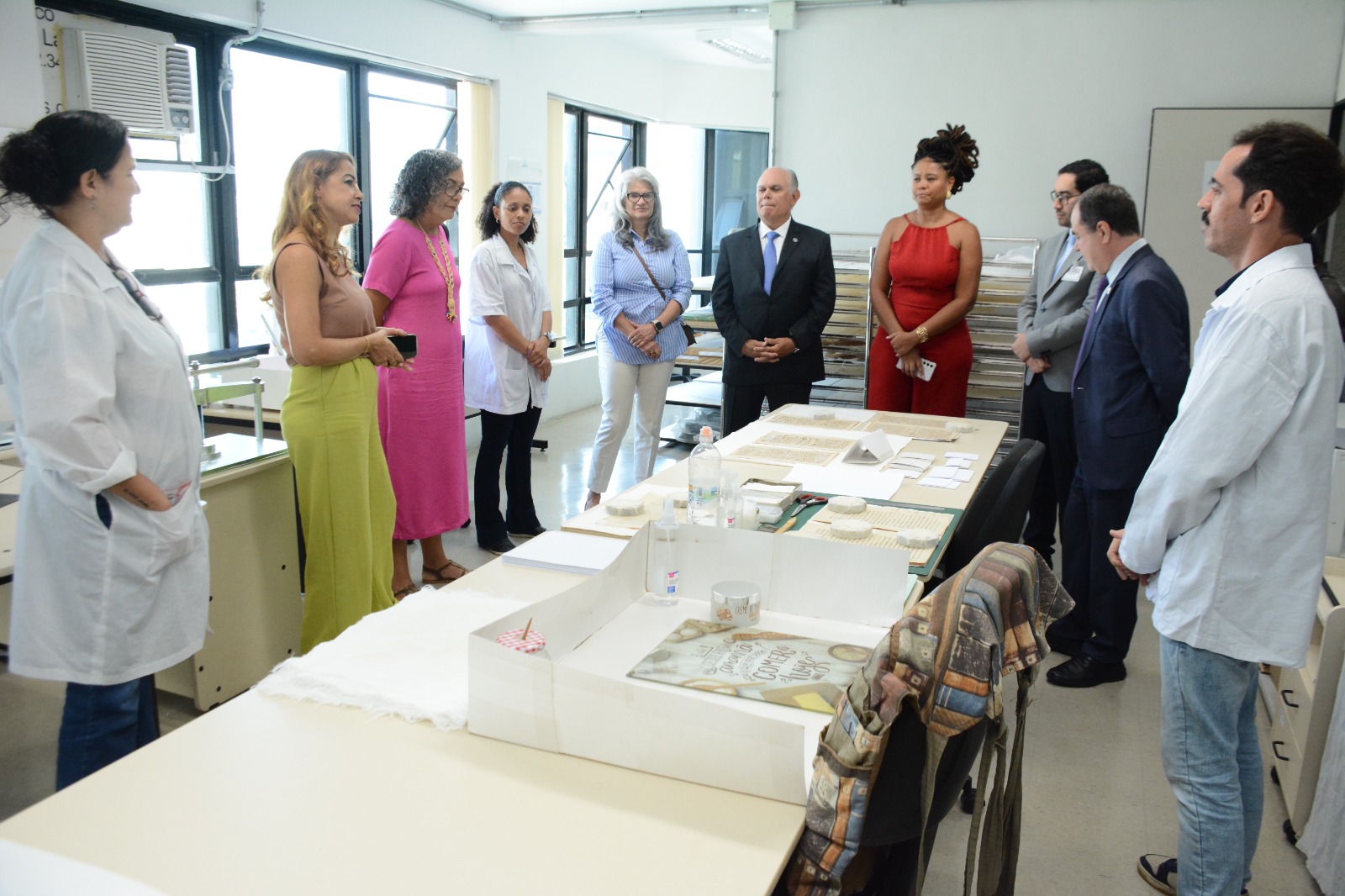
With the aim of fostering the exchange of good practices in the conservation, restoration and storage of historical documents of the Brazilian Judiciary, the Superior School of the Judges of the State of Tocantins (Esmat) is studying the implementation of a similar unit in the city of Palmas to that of the Laboratory for Minor Repairs of Historical Documents, of the Edésio Fernandes Judicial School (EJEF), located in the city of Belo Horizonte (MG).
During a technical visit chaired by Justice Marco Villas Boas, general director of Esmat, the delegation from the state of Tocantins received information on how the actions of EJEF to set up the laboratory were carried out, such as the acquisition of equipment and supplies, the hiring and training of staff and the creation of storage, digitization and sharing of files and metadata using the Atom global platform, which is essential for scientific research into documents that tell part of the history of Brazil. More than 32,000 historical documents have already been made available at EJEF, more than 12,000 of which are accessible on the global file-sharing platform, Access to Memory (Atom).
According to Justice Saulo Versiani Penna, second vice-president of the TJMG, superintendent of the Edesio Fernandes Judicial School (EJEF) and executive director of the Documentary Information Management Board (DIRGED), the partnership with Esmat and Copedem in disseminating knowledge of memory management and document management will strengthen document preservation in the other courts of justice in Brazil.

“This approach with Esmat is fundamental, as we will be able to exchange experiences, values and our memory. We presented our work and had the opportunity to demonstrate the recovery of Autos from 1736 from the old Vila Rica, now the district of Ouro Preto, an exceptional milestone for all of us. We hope that this experience, now with the support of Marco Villas Boas, the president of Copedem, can bear good fruit and gain national recognition,” he said.
For Justice Marco Villas Boas, general director of Esmat, the experience of the state of Minas Gerais, through the Edésio Fernandes Judicial School, will strengthen the activities of document management and the restoration of historical documents in the courts of the state of Tocantins.
“We want to take this knowledge and this successful experience of EJEF so that we can understand the history of Brazil from the perspective of the past, observing the work of the Judiciary over the centuries, preserving institutional memory and rewriting the history of Brazil under the aegis of Brazilian legal thought and action,” he recalled.
On the occasion, the team of TJMG and EJEF showed the Esmat delegation the steps for using the ATOM platform for storing historical documents and metadata, and presented the permanent and intermediate archive units of the Judiciary of the state of Minas Gerais.
Delegation
Participating in the technical visit were Justice Marco Villas Boas, president of Copedem and general director of the Superior School of the Judges of the State of Tocantins (Esmat); Ana Beatriz de Oliveira Pretto, executive director of Esmat; Cynthia Valéria Aires, librarian; and Wherbert Araújo, journalist, both Esmat employees, all of whom and Justice Saulo Versiani were received by Thiago Doro, executive director of Documenta Information Management (Dirged); Daniela Fernanda Santos, manager of Archive and Document Management of the 1st Instance Justice (Gearq); Simone Meireles, manager of Archive and Document Management of the 2nd Instance, Electronic and Permanent Documents (Gedoc); and Sônia Santos, coordinator of Coarpe. The delegation also took part in the Technology, Artificial Intelligence and Innovation in the Judiciary Congress, promoted by EJEF.
_thumbnail_thumbnail.jpeg)
_thumbnail_thumbnail.jpeg)
_thumbnail_thumbnail.jpeg)
_thumbnail_thumbnail.jpeg)
_thumbnail.jpeg)
_thumbnail.jpeg)
_thumbnail.jpeg)
_thumbnail.jpeg)